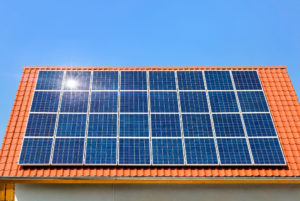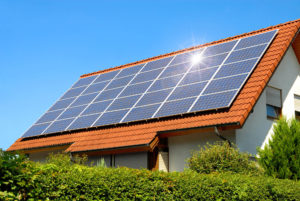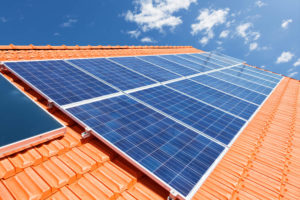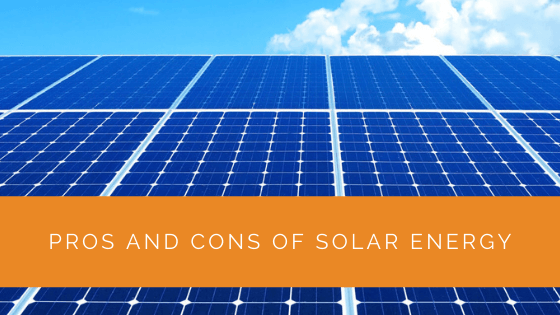Solar energy, a cornerstone of renewable energy solutions, has gained traction worldwide due to its potential to reshape how we generate and use power. This article delves into the multifaceted world of solar energy, comprehensively yet straightforwardly unpacking its advantages and disadvantages. Whether you’re considering switching to solar power or simply curious about its impact, our exploration offers a balanced perspective on this increasingly popular energy source.
Contents
- 1 Key Takeaway
- 2 What are the Advantages of Solar Energy?
- 3 What are the Disadvantages of Solar Energy?
- 3.1 Heavily Dependent on Weather Conditions
- 3.2 An Expensive Choice
- 3.3 Storage is not Easy
- 3.4 Requires a Considerable Amount of Space
- 3.5 Zero Portability
- 3.6 The Manufacturing Process Has a Negative Environmental Impact
- 3.7 The Energy Conversion Rates are a Problem
- 3.8 Difficulty in Finding the Right Solar Company
- 4 At a Glance: The Pros Vs Cons of Solar Energy
- 5 Case Study: Residential Solar Installation
- 6 Expert Insights From Our Solar Panel Installers About Solar Energy
- 7 Experience Solar Excellence with Us!
- 8 Wrapping Up
Key Takeaway
- Solar energy offers several advantages, including significant savings on electricity bills, long-lasting technology, a reduced carbon footprint, and government incentives to promote its adoption.
- Solar energy has some disadvantages, such as being heavily dependent on weather conditions, high initial costs, the need for expensive energy storage solutions, and space requirements for installation.
- Despite its drawbacks, the solar energy industry is experiencing steady growth and innovation, with a promising future in terms of environmental sustainability and energy independence.
What are the Advantages of Solar Energy?
Many solar energy benefits have contributed towards making solar power a wildly successful renewable energy source. So, without further ado, dive right in to discover the top solar energy pros.
Savings on Electricity and Energy Bills
In today’s age of rising electricity costs, solar energy is a true boon. This is especially applicable if you have solar panels or hybrid solar systems installed at your office or residence.
Get this: statistics indicate that you can save up to $30000 on your energy bills in the long run, solely by making the switch to solar energy. That said, it is important to treat the savings from solar panel systems like compound interest – it will take a while before you can witness substantial solar savings on your electricity bills.
So, patience is the key here!
Long-lasting
Here’s another solar energy pro that will bring great value to your money. Solar panels, and solar power applications in general, have long life spans. For instance, the average life span for solar panels is pegged at 25 years, and they can be used to produce electricity.
Further, a hybrid solar system can work flawlessly well for about 25-30 years. On the other hand, a solar oven can last for more than 15 years, even with regular and heavy usage.
This longevity is a feature shared by nearly every solar energy technology, making it one of the prominent solar energy advantages.

A Very Environmentally Friendly Energy Source
Listed below are the countless environmental benefits of solar energy:
- Reduced Carbon Footprint: There are no fossil fuels involved in solar energy, so there is no question of carbon dioxide emissions. This goes really a long distance in reducing the carbon footprint. Here’s an insightful statistic to put things in perspective: If every American household had solar panels installed, they could reduce their carbon emissions by more than 3000 pounds each year.
- Clean Energy, Green Energy: All solar energy applications need just one thing to operate- sunlight. Solar power is available in abundance, making solar energy a wonderful source of clean and green energy.
- No Water Usage: Unlike other forms of energy like coal, solar power does not require water to function.
- Zero Air Pollution: This ties in closely with the first point. When there are no greenhouse gas emissions, it means that solar energy systems and solar panels don’t contribute to air pollution.
- Solar energy also helps combat global warming and climate change.
Government Support
In the wake of climate change, governments worldwide have started encouraging citizens to switch to renewable energy sources. In this regard, many of them have started providing households with incentives.
For example, you have the Solar Renewable Energy Credits (SRECs) scheme. Under this scheme, every American homeowner earns an SREC each time the solar panel system installed on their rooftop produces a 1-megawatt hour (MWh) of electricity.
As a homeowner, you can then trade your SRECs for money. Depending on the U.S. state you are based out of, the SREC rates will differ. For instance, in Washington D.C., your SREC can fetch you a handsome $425. On the flip side, in Pennsylvania, you can earn $21 per SREC.
With careful planning and research, you can use your residential or commercial solar panel system to earn a regular side income. Now, isn’t that cool?
Multiple Uses
Solar energy is not your average one-trick pony. While solar panels are primarily used to generate power and electricity, a hybrid solar power system is also used for the purpose of solar energy storage. Apart from cooking, you can use solar ovens to boil water and bake foodstuff as well.
Similarly, solar water heating systems are widely used for domestic hot water purposes.
Brings Added Value to the Property
Here’s why you should install solar panels as soon as you can. Many realtors across the USA strongly believe that when you install solar panels, a hybrid solar system, or a solar water heating system, you are essentially improving the value of your property.
Therefore, should you want to sell your house sometime down the line, you’ll get a higher price for it, thanks to your earlier solar investment.
Constant Development and Innovation in Technology
As solar energy became popular across the country, it was initially hailed for the energy independence that it facilitated. Since then, much money has gone into clean energy research (solar energy applications, wind turbines, etc.).
Consequently, with multiple innovations and breakthroughs on the horizon, the future looks very promising for solar energy.
Zero Wastage
Are you wondering what will happen if your solar panels produce excess solar energy? You needn’t worry about that. Two options are available to you.
You can always store the extra energy that your solar panels generate for future use, should you want to do so. If not, you also have the option to feed the surplus energy produced into the energy grid and earn some extra bucks in the process!

Easy Peasy Maintenance and Use
It is very easy to maintain your solar panels, ovens, or hybrid systems in good condition. You need not worry about getting them replaced or anything, as all solar energy systems are durable.
What’s more, the working principle that powers solar energy applications is rather straightforward, making them very easy to use. No rocket science involved!
What are the Disadvantages of Solar Energy?
Like traditional energy sources, there are a couple of solar energy cons that you cannot ignore. To dig deeper into the solar energy disadvantages, check out the list below:
Heavily Dependent on Weather Conditions
Ironically, the greatest strength of every solar energy system is also its biggest weakness: the need for plenty of sunshine. This means that inclement weather conditions can impact the efficiency of solar panels. The same applies to solar water heating systems and every other home solar system.
So, if you’re situated in a location that reports overcast weather conditions for a greater part of the year, you’re in for some tough luck.
An Expensive Choice
This is one of the biggest downsides attributed to solar energy and its applications. The equipment and installation costs are very high. Here’s an estimate to help put things in perspective: If you want to install a 10 kW solar system, you will have to shell out nearly $30,000. And, that is the average cost.
This cost will vary according to the make and model of the solar panels you’re planning to install and the solar providers you contract with. However, there are two ways of bringing down this upfront cost.
- You can avail of the federal solar tax credit. By doing so, you will have 30% of the total amount invested returned to you. So, if you paid $25,000 for a solar panel system, you can recover $7,500 under the tax credits. Remember what we had to say about government support?
- That said, there are multiple solar energy incentives available at the state, county, and local levels. Scout for them, and grab the opportunities.
Storage is not Easy
While solar power generation does not pose much of a challenge, the same cannot be said of the energy storage aspect.
To store solar energy, you will need batteries, and they are quite expensive. Nevertheless, this shouldn’t be a big problem if you can manage to meet most of your energy needs during the day and tap into the grid supply during the night.
Requires a Considerable Amount of Space
Irrespective of whether you are installing solar panels, hybrid systems, or water heating systems, they will all take up space. There have been countless instances in the U.S.A involving homeowners who realized a little too late that their rooftops are not large enough to accommodate all the solar panels needed for sufficient electricity generation.
While this can be resolved by adding solar panels in your backyard, you will have to part with valuable space. The same can be said about solar water heating systems.
Therefore, you must clear out enough space for the solar panels before getting them fitted.
Zero Portability
After you have a solar system installed, it is fixed there. It can be very difficult to change the position of the panels later on. Things only get more complicated if you plan to shift houses.
In such cases, your solar company can help you shift the solar panels to the new location, but here’s the catch: you will be asked to bear the de-installation and re-installation costs incurred in the process. And, at times, they can be very high.
The Manufacturing Process Has a Negative Environmental Impact
This might sound bizarre, but it’s true. Research has found that the manufacture of solar panels, solar ovens, hybrid solar systems, and solar cells – all of them involve processes that end up doing more harm to the environment than good.
In short, while the solar energy applications themselves are eco-friendly, the manufacturing processes that created them aren’t.

The Energy Conversion Rates are a Problem
There’s so much sunlight reaching the Earth’s surface every second, but most of it doesn’t get converted into solar energy. In fact, even the best and most sophisticated solar panels can only convert around 20-25% of the incoming sunlight into electricity.
While this low energy conversion rate is a problem, given the rapid advancements in technology, it is only a matter of time before this problem is solved.
Difficulty in Finding the Right Solar Company
Lately, an increasing number of solar companies have been limiting their services to specific geographical regions. Consequently, if you live in a remote area, you might find connecting with a solar company hard.
You might face the same problem with installers, so it would help if you were prepared in advance.
At a Glance: The Pros Vs Cons of Solar Energy
| Solar Energy Pros | Solar Energy Cons | |
|---|---|---|
| 1. | Savings on electricity bills | Heavily influenced by the weather |
| 2. | Long-lasting | Requires a lot of space |
| 3. | Very eco-friendly | The material and installation costs are high. |
| 4. | Multiple uses | The energy storage mechanisms are expensive. |
| 5. | Easy to use and maintain | The energy conversion rates are low |
| 6. | Government support | Zero portability |
| 7. | Zero wastage of energy | The manufacturing processes involved are harmful to the environment |
| 8. | Constant technological improvements | Problems related to finding the right solar company and installers |
| 9. | It brings added value to the property |
Case Study: Residential Solar Installation
Background
The Moore family, residing in Topeka, Kansas, decided to invest in solar energy to reduce their environmental footprint and lower their monthly electricity bills. Living in an area with a mix of sunny and cloudy days, they were eager to understand the benefits and challenges of solar energy in their specific locale.
Project Planning and Objectives
The primary goals for the Moore family were:
- To decrease their reliance on the traditional power grid.
- To reduce their monthly energy expenses.
- To take advantage of available financial incentives to offset the installation costs.
They contacted Solar Panels Network USA to guide them through the process, from initial consultation to final installation and maintenance.
Implementation
Initial Consultation and Site Assessment
Solar Panels Network USA conducted a thorough site assessment, considering factors such as roof orientation, shading from nearby trees, and the structural integrity of the roof. The assessment confirmed that the Moores’ home was a suitable candidate for a solar panel installation.
System Design and Permitting
A grid-tied solar system was designed for the Moores, ensuring they could benefit from net metering. This setup would allow them to send excess energy back to the grid, earning credits on their electricity bill. Solar Panels Network USA handled all permitting requirements, coordinating with local authorities and the utility company to ensure compliance with local building codes and regulations.
Installation
The installation process was completed over several days. High-efficiency monocrystalline solar panels were chosen for their superior performance and aesthetic appeal. The installation included:
- Mounting the panels on the roof.
- Installing an inverter to convert the DC electricity generated by the panels into AC electricity for home use.
- Connecting the system to the home’s electrical panel and the utility grid.
Inspection and Commissioning
After installation, the system underwent rigorous inspections to ensure safety and compliance. Once approved, the system was commissioned, and the Moores began generating their own solar power.
Results and Benefits
Financial Savings:
- The Moore family immediately noticed a reduction in their electricity bills. With net metering, they earned credits for the excess energy produced during sunny days, which offset their energy costs during periods of lower production.
- They also benefited from the federal tax credit, which covered 30% of the installation costs, making the investment more affordable.
Environmental Impact:
- By switching to solar energy, the Moores significantly reduced their carbon footprint, contributing to a cleaner environment.
Energy Independence:
- The grid-tied system provided reliability and peace of mind, ensuring a steady supply of power while reducing dependence on the traditional power grid.
Increased Property Value:
- The installation of solar panels increased the value of the Moores’ home, making it more attractive to future buyers interested in energy-efficient properties.
Summary
The Moore family’s experience with solar energy in Topeka, Kansas, highlights the tangible benefits of residential solar installations. By leveraging available financial incentives and partnering with a reputable provider like Solar Panels Network USA, they successfully reduced their electricity costs, contributed to environmental sustainability, and increased their home’s value. This case study underscores the importance of professional guidance in navigating the complexities of solar installation, ensuring a smooth and beneficial transition to renewable energy.
Expert Insights From Our Solar Panel Installers About Solar Energy
One of the biggest advantages of solar energy is the potential for significant savings on electricity bills. Many of our clients see a noticeable reduction in their monthly costs, which adds up to substantial savings over the years.
The long lifespan of solar panels, often 25 years or more, makes them a solid investment for homeowners. Despite the initial costs, the durability and minimal maintenance needs of these systems provide excellent long-term value.
While the initial cost of solar panels can be high, various financial incentives, including federal tax credits and state-specific rebates, can significantly offset these expenses. It’s essential to explore these options to maximize your investment.
Experience Solar Excellence with Us!
Trust in Solar Panels Network USA, where our seasoned experts deliver top-quality solar solutions for homes and businesses nationwide. With a legacy of countless successful installations and a commitment to sustainable energy, we’re your reliable partner in the solar journey. Ready for a brighter, eco-friendly future? Call us now at (855) 427-0058 and harness the power of the sun!
Wrapping Up
Solar energy holds immense promise for a sustainable future with reduced electricity costs, environmental friendliness, and government incentives. Though there are limitations, such as weather dependency, high initial costs, and space requirements, the steady growth and continuous innovation in the solar industry are encouraging. As more adopt solar solutions, we move closer to a world where renewable energy is a standard of living. Embracing solar energy is a step towards a brighter, cleaner future and contributes to a healthier planet.
About the Author
Solar Panels Network USA stands at the forefront of solar energy solutions, driven by a team of seasoned solar engineers and energy consultants. With over decades of experience in delivering high-quality solar installations and maintenance, we are committed to promoting sustainable energy through customer-centric, tailored solutions. Our articles reflect this commitment, crafted collaboratively by experts to provide accurate, up-to-date insights into solar technology, ensuring our readers are well-informed and empowered in their solar energy decisions.

